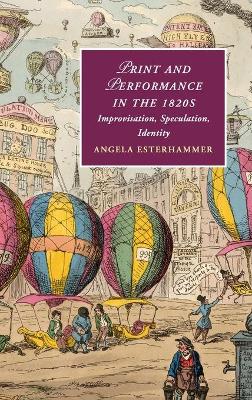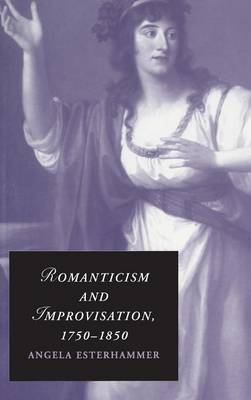Cambridge Studies in Romanticism
2 total works
During the 1820s, British society saw transformations in technology, mobility, and consumerism that accelerated the spread of information. This timely study reveals how bestselling literature, popular theatre, and periodical journalism self-consciously experimented with new media. It presents an age preoccupied with improvisation and speculation - a mode of behaviour that dominated financial and literary markets, generating reflections on risk, agency, and the importance of public opinion. Print and Performance in the 1820s interprets a rich constellation of fictional texts and theatrical productions that gained popularity among middle-class metropolitan audiences through experiments with intersecting fantasy worlds and acutely described real worlds. Providing new contexts for figures such as Byron and Scott, and recovering the work of lesser-known contemporaries including Charles Mathews' character impersonations and the performances of celebrity improvvisatore Tommaso Sgricci, Angela Esterhammer explores the era's influential representations of the way identity is constructed, performed, and perceived.
During the Romantic era, especially in Italy, performers known as improvvisatori and improvvisatrici extemporised poetry in public in response to subjects requested by their audiences. This type of performance fascinated Grand Tourists from northern Europe, who reported on poetic improvisers in hundreds of travel accounts, journals, letters, and periodical articles. By uncovering historical data and interpreting literary texts, Professor Esterhammer identifies patterns in the evolving responses of English, German, French, and Russian writers to the experience of improvisation. She explores how improvisation interacts with Romantic ideas about genius, spontaneity, orality, and emotional expressiveness, and relates to evolving concepts of gender and nation. Esterhammer goes on to interpret the influence that the figure of the poetic improviser had in nineteenth-century English and European fiction. In this context, the improvvisatore casts new light on conflicts between poetic genius and socio-economic constraints, and on the evolution of the Bildungsroman.

